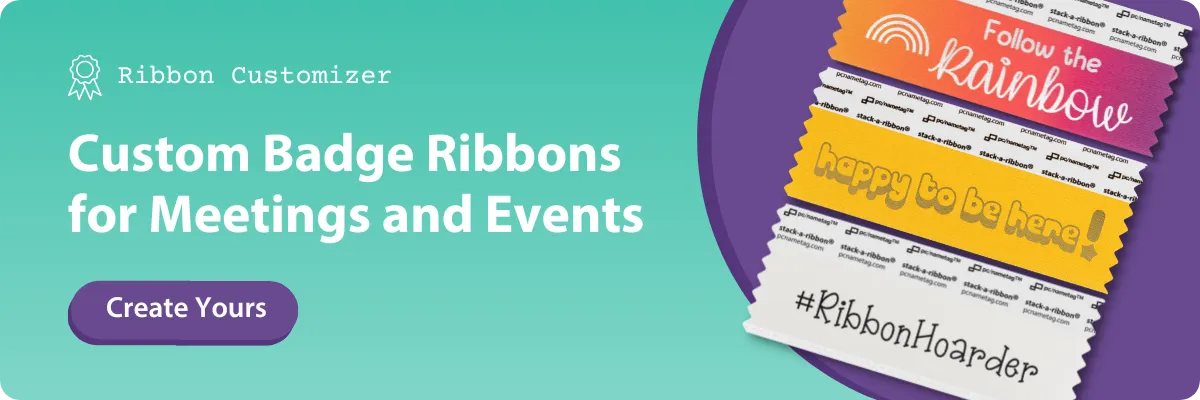Have you ever attended a networking event and felt like the odd one out in a room full of strangers? Have you ever struggled to strike up a conversation or left an event feeling drained? If so, this guide is for you.
Event networking can feel overwhelming, especially for introverts. Navigating crowded rooms, engaging in small talk with peers, and making connections can take years of practice, even for the most confident of introverts.
Whether you're gearing up for a conference, a special interest group, or a professional mixer, these insights will help you approach networking with confidence and authenticity. Use the event preparation ideas, conversation tips for introverts, and other actionable strategies to get the most out of every event you attend!
Welcome! 👋 See What's Inside:
- What is a networking event?
- Benefits of networking for introverts
- Event networking tips for introverts
- FREE DOWNLOAD: Networking Conversation Starters Cheat Sheet

What is a networking event?
A networking event is a type of social gathering where people with common interests gather to exchange information, share ideas, and expand their professional networks.
Some examples of networking events include:
- Alumni events
- Business luncheons
- Community events
- Industry conferences
- Professional meet-ups
- Seminars
- Social mixers
- Special interest groups (SIGs)
- Speed networking events
- Trade shows and expos
- Virtual events and webinars
- Workshops
Many people attend networking events to establish new connections and build relationships that may lead to career advancement, collaboration, business development, or personal growth.

The Introvert's Edge in Networking
Many introverts underestimate their networking abilities. Some may see their quiet nature as a disadvantage in social situations, but introversion can be a strength in networking situations.
For instance, introverts are typically great listeners and deep thinkers. They also excel at forming meaningful, one-on-one connections, which can make their networking experiences more successful.
According to Jazmynn Appleton, Chief Director of Entrepreneurial Growth and Innovation at the Progress Center for Black Women, introverts can leverage their strengths to approach networking in ways that suit their needs. Play our video below to learn more.
3 Benefits of Networking for Introverts
Introverts can be successful networkers, especially if they hone their unique strengths and abilities to build lasting connections with others. Benefits of networking for introverts include the following:
- Establish personal and professional relationships. Networking events offer introverts a structured environment to initiate conversations and establish connections with like-minded individuals who share common goals or interests.
- Take advantage of a controlled social environment. Unlike spontaneous interactions, networking events provide introverts with a structured environment where they can prepare in advance, set goals for their interactions, and strategically approach conversations at their own pace.
- Meet your professional development goals. Building a professional network is essential for career development. Networking events offer introverts the opportunity to expand their circles of influence, gain valuable insights, learn new trends, uncover growth opportunities, and advance in their careers.
Read on to find a list of tips, tricks, and strategies on how to network at events—catered specifically to introverts!
Top Networking Tips for Introverts
As an introvert, you can not only survive but thrive at any networking event you attend! With the right balance of intentionality, authenticity, and confidence, you’ll meet your business networking goals in no time. Read on to find tips on what introverts should do before, during, and after every networking event.
How to Prepare for a Networking Event
Before attending a networking event, preparation is key. This can help reduce anxiety and set you up for success. Here are a few more pre-networking tips:
- Research the event and its attendees. This will give you an idea of who you want to connect with. Also, look at last year’s event roster to see which vendors, suppliers, and organizations signed up. Lastly, download the event’s app and look through registered attendees’ names, job titles, and organizations.
- Define your “why” of attending the networking event. Are you looking for new ideas? Useful tools and solutions? New business partnerships, or something else? Identify your target to help you feel more productive as you interact with new people.
- Set 1-3 purposeful networking goals. Ask yourself: What do I need to focus on at this event to get to where I want to be? Consider your answer, then formulate 1-3 realistic goals for yourself. For example, a goal could be to have three meaningful conversations rather than trying to meet everyone.
- Practice your elevator pitch. Look for tutorials on how to perfect your elevator pitch or better yet, practice with a friend or colleague. The best introductions communicate who you are, what you do, and the value you bring in a concise, memorable manner.
- Have a few conversation starters ready. Nothing feels more awkward than not knowing what to say when speaking with new people! Get ahead by preparing a few questions or topics you can rely on. Looking for ideas? Download our cheat sheet for conversation starters!
- Find a networking buddy to help you navigate the event. Sometimes, going to an event with a buddy can help you feel less alone and give you the confidence you need to approach new people. Ask a colleague, industry peer, or friend to accompany you to the event.
- Update your LinkedIn profile to make online networking more effective. Your LinkedIn is like your “personal snapshot,” so make sure it’s up to date. Do you have an updated headshot? A catchy tagline? Accurate job and company information? Find tips in our video with Jazmynn below.
What to Bring to a Networking Event
Wondering what you should bring to a networking event? The key is to be prepared, but to also pack lightly — bringing only the items you need to ensure you're equipped for success. 👍
- Business Cards: Business cards are not dead! These small but mighty tools are the easiest way to exchange contact information and make post-event follow-up a breeze. Bring physical business cards or download a scannable digital business card app via QR code.
- A Notebook and Pen: Bring a journal, notepad, or digital device to jot (or type) down important notes and key takeaways from the event.
- A Bag: Whether you choose a tote bag or a backpack, consider bringing something to carry hand-outs and marketing collateral from any booths you visit. Make sure to check the venue’s bag policy, just in case.
- A Water Bottle and/or Mints: Stay hydrated throughout the event by drinking water, or at the very least, carry mints with you to keep yourself feeling comfortable while you’re doing a lot of talking with others.
- Your Portfolio: Depending on the nature of the event, it may be beneficial to bring your portfolio showcasing your work or a resume to leave a lasting impression on potential employers or collaborators.
While it may sound cliché, don’t underestimate the power of a confident demeanor and a positive attitude. In other words, bring your authentic self and approach each interaction with curiosity and openness. This, plus the items on our list, will leave you well-prepared to navigate the networking event with ease.
Badge Ribbons Make the Perfect Event Networking Tool!
Did you know? Badge ribbons are cost-effective networking tools that can be used to break the ice, start conversations, add identifiers, and share useful information with other people. Plus, we think they’re a lot of fun to wear!
What are badge ribbons? Badge ribbons are fully customizable accessories that attach to the bottom or sides of event badges. Event attendees can attach a single ribbon to their badges or wear multiple ribbons by stacking one on top of another. Customize them to your needs with our variety of sizes, shapes, colors, foils, fonts, and titles.
 |
|
Do you love badge ribbons as much as we do? Subscribe to our Badge Ribbon Enthusiasts Newsletter, written and managed by Brooke. Here’s what you can expect:
- Monthly spotlights on artists, cosplayers, and other creators
- New downloadable ribbon design templates every month
- First access to special discounts on badge ribbons
Plus, we’ll send you a coupon to use on your first custom badge order to show our appreciation. ❤️
What to Wear to a Networking Event
If you’re feeling anxious about dressing appropriately for a networking event, you’re not alone. The good news is that deciding what to wear for a networking event is usually a matter of personal style and choice.
Remember, the outfit you wear to a networking event can influence your level of confidence, so follow these tips to help you choose the right wardrobe for your next gathering.
- Look at the event’s dress code. Is it formal, business casual, or casual? Take cues from the event’s website, invitation, past photos, or guidelines provided to ensure you're dressed appropriately.
- Dress according to the industry. What are the norms of the industry or profession you're in? For example, your outfit for an event technology conference may be more relaxed compared to a finance or legal networking event, where a business look might be more appropriate.
- When in doubt, choose business casual. Consider wearing dress pants paired with a button-down shirt, blouse, or polo shirt. Slacks, skirts, professional dresses, and sweaters are also a sure bet!
- Consider your comfort. Give yourself confidence and ease of movement by choosing clothes made from breathable, lightweight fabrics paired with comfortable shoes that won’t hurt your feet. This is especially helpful if you'll be standing or walking a lot throughout the venue.
- Add personal flair to your outfit! Did you know that clothes can affect your confidence? Try adding a touch of personality to your outfit as a conversation starter. For instance, wear a fun piece of jewelry, a colorful tie, patterned socks, or interesting shoes. Or, pick and choose your favorite badge ribbons for your event badge! Just make sure to keep flair in line with the event’s tone.

Create badge ribbons from scratch or buy pre-assembled badge ribbon fun packs.
By following these general guidelines, you'll automatically project professionalism, confidence, and authenticity with your attire. Remember, your outfit is not just a reflection of your style, but also a powerful tool for making a memorable impression with new people in your professional network.
What to Do at a Networking Event
Once you're at the event, it's time to put your preparation into action. Read on to find six quick tips on how to network at an event and feel confident while doing so.
- Use your body language to appear approachable. According to Jazmynn Appleton, it’s important to give a warm smile, stand or sit confidently, maintain an open posture, and avoid crossing your arms.
- Use active listening to your advantage. People appreciate good listeners. Show that you’re fully engaged by giving someone your full attention, demonstrating understanding, and providing appropriate feedback, such as nodding or paraphrasing their words.
- Ask clarifying questions. Try maintaining eye contact, nodding in agreement, and asking open-ended follow-up questions during a conversation to demonstrate understanding and encourage the conversation to keep flowing.
- Share your knowledge and expertise. Remember, you add value to every room you enter! Be authentic, be confident, and always remember that most people will be genuinely interested in your unique perspectives and opinions within your industry.
- Take breaks to recharge if needed. Jazmynn suggests planning strategic breaks throughout the event to help you rest, relax, and refocus. For example, take a moment to write some notes, get a drink or snack, or step outside for some fresh air. Try taking a walk around the block and listening to your favorite song so you can re-enter the event space with more energy.
- Volunteer for events to get in some practice. As an introvert, volunteering at events you’re passionate about gives you a structured role and a natural way to meet people you’ll jive with.
Remember, networking is not just about talking. It's about listening, engaging, and building meaningful connections. With these strategies, you can make the most of your interactions at the event.
How to Start a Conversation in a Networking Event
If you’re wondering how to be confident as an introvert (especially in social settings), you’re not alone. Starting a conversation at a networking event can feel intimidating, especially for introverts. But luckily, there are tons of tips and strategies to help you feel more at ease.
Conversation tips for introverts include the following:
- Lean into your conversation starters. Don't be afraid to take the initiative and introduce yourself. Keep it simple and friendly. Chances are, the other person might be nervous to say hello to you, too! Then, ask one of your prepared conversation starters to break the ice.
- Find common ground. Become a conversation sleuth! Try to find shared interests or experiences to initiate a conversation. Bring up something related to the event, such as a speaker or topic, or a general topic like your hobbies or recent travels.
- Tell an interesting story. Get the conversation rolling by telling an interesting anecdote about yourself, a funny situation that happened to you recently, or a thought-provoking memory. A well-crafted story will allow those around you to ask you follow-up questions.
- Ask open-ended questions. Avoid abrupt stops in conversation by encouraging the other person to share more about themselves. Do this by asking open-ended questions that go beyond simple yes or no answers. (Pssst... Want a cheat sheet of ideas? Click here.)
- Throw in a compliment! Start your chat on a positive note! Try offering the person a compliment, such as a comment on their outfit (“I love your tie! Where did you get it?”) or their badge ribbons, (“I see you love dogs. How many pets do you have?”) a recent accomplishment they’ve done, or a shared interest you admire.
Before closing out a conversation, be sure to exchange contact information, business cards, or LinkedIn pages. End on a strong note by saying “I’m excited to re-connect with you after [event name]. I’ll be sure to reach out to you on [LinkedIn/email]. Talk to you soon!”
How to Follow Up After a Networking Event
After a networking event, it's always a good idea to follow up with the people you've met. This helps to solidify the connections you've made. Follow these steps to continue your conversations after a conference:
- Connect via LinkedIn. Send the person a request to connect, plus a note of who you are and how you met. Once the person accepts your request, move on to step #2. If the person does not have a LinkedIn profile, send them an email.
- Send a personalized message. Mention something specific from your conversation to help them remember you better. This is where your note-taking skills come in handy! Keeping a record of the people you meet and interesting details about them is a must.
- End with a call to action. Instead of ending your message with “It was great to meet you,” create a deeper connection by asking for another touchpoint. Ask the person “Would you be interested in having a meet and greet over coffee?” or “Are you available for a quick call/video meeting with me?" Keep the conversation going; don’t let your connection end with the event!
Use this LinkedIn message template:
“[Name], I enjoyed meeting you recently at [Event Name]. I loved speaking with you about [topic], and I’d love to learn more from you about [subject]. Are you available for a quick, 15-minute call this week? Thanks!”
Remember, networking is about building relationships. Consistent and thoughtful follow-ups can turn brief, surface-level meetings into long-lasting, beneficial professional connections.
How to Find Networking Events
Finding networking events near you is easier than you might think. Try investigating your options through the following sites and methods:
- Online Event Directories: Eventbrite, Meetup, Facebook Events, and LinkedIn Events are all examples of directories to help you find meet-ups based on location, industry, and interests.
- Industry Associations: Find industry-specific associations or professional organizations in your area that host conferences, events, seminars, and workshops in your field. For example. The American Marketing Association (AMA) hosts gatherings for marketers in many cities across the country.
- Local Business Groups: Look for local business groups, chambers of commerce, convention and visitors bureaus (CVBs) or entrepreneurship centers in your community. These organizations often host gatherings, activities, and mixers to support local professionals.
- Social Media: Follow relevant hashtags, groups, or pages on social media platforms. Many event organizers promote their networking events through social media channels, allowing followers to stay up to date on upcoming opportunities.
- University Alumni Networks: Check the alumni network of your college or university. Alumni associations often host award ceremonies, happy hours, and professional development workshops for graduates to connect.
- Networking Apps: Download a networking app like Bumble Bizz, Meetup, Clubhouse, or the LinkedIn App. These programs use algorithms to match you with professionals in your area based on your interests, skills, and goals, making it much easier to connect with like-minded peers.
- Local Meetups: Keep an eye out for local meet-ups, community gatherings, or cultural events happening in your area. While these are more “informal” networking opportunities, you’ll still have the chance to meet new people and expand your network organically.
- Word of Mouth: Don't underestimate the power of your own connections and network. Ask your friends, colleagues, or mentors if they know of any upcoming networking events or if they can introduce you to networking groups (or associations) they've joined.
- User Groups: Many software companies host local networking events for their users. For example, HubSpot hosts “HubSpot User Groups” (HUGs), which are a great way to meet people in the same line of work as you.
While networking events are great, remember that there are endless opportunities to practice connecting with others in your everyday life. Try the tips mentioned in this article the next time you’re at a coffee shop, exercise class, or even while waiting in line at the grocery store.
Trust us... you have nothing to lose, and you might even bring joy to someone in need of a smile! Casual conversations in these settings will help you build momentum for larger networking events.

Conversation Starters Cheat Sheet: Download Your Copy!
Remember, networking as an introvert doesn't mean trying to be someone you're not. Rather, it's about leveraging your strengths and finding strategies that work for you. Remember, quality connections often matter more than quantity.
Lastly, remember that networking is a long-term investment. Don’t stress yourself out by trying to do it all at once. Remind yourself that you’re building relationships, not just “collecting contacts.”
And lastly, be patient with yourself and celebrate small victories along the way. Everyone makes mistakes, so try not to dwell on anything you feel you did (or said) wrong. You deserve kindness from yourself! Everyone has a few awkward conversations now and then!
TELL ME: How do you embrace your introverted networking style? Leave a comment to let me know!






Submit a Comment